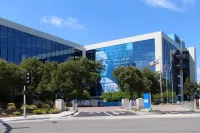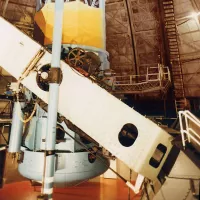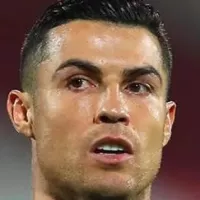Gordon Moore was an American businessman, engineer, and co-founder of Intel. He is best known for Moore's Law, which predicted that the number of transistors on a microchip would double approximately every two years, while the cost would be halved. This observation has proven largely accurate and has guided the semiconductor industry for decades, driving rapid advancements in computing power and technology. Moore's Law became a guiding principle for Intel and the broader tech industry, influencing product development, investment strategies, and technological progress. His work has been crucial in the digital revolution.
January 3, 1929: Gordon Moore Born
On January 3, 1929, Gordon Earle Moore was born. He later became a prominent American businessman, engineer, and co-founder of Intel Corporation.
1929: Gordon Moore's Birth
In 1929, Gordon Moore was born as the second son of Walter Harold Moore and Florence Almira "Mira" Williamson.
1935: Started School
In 1935, when Moore started school, faculty noted his introverted personality.
1938: Family Moved to Redwood City
In 1938, Moore's father accepted a promotion and moved the family to Redwood City, California.
1940: Received a Chemistry Set
In 1940, Moore received a chemistry set as a Christmas gift, inspiring him to become a chemist.
1942: Studied at Sequoia High School
From 1942 to 1946, Moore studied at Sequoia High School, participating in athletic activities.
1946: Attended San José State College
From 1946 to 1947, Moore attended San José State College (now San José State University), studying chemistry.
1947: Continued Studies at San José State College
In 1947, Moore continued his studies at San José State College (now San José State University), studying chemistry.
1947: Met Betty Irene Whitaker
In 1947, Moore met his future wife, Betty Irene Whitaker, during a student government conference at the Asilomar Conference Grounds.
1948: Transferred to UC Berkeley
In 1948, Moore transferred to the University of California, Berkeley, taking courses from notable scientists.
September 1950: Enrolled at Caltech
In September 1950, Moore enrolled at the California Institute of Technology (Caltech) to pursue further studies.
1950: Graduated from UC Berkeley
In 1950, Moore graduated from the University of California, Berkeley, with a Bachelor of Science degree in chemistry.
1950: Married Betty Irene Whitaker
In 1950, Moore married Betty Irene Whitaker.
1953: Conducted Postdoctoral Research
From 1953 to 1956, Moore conducted postdoctoral research at the Applied Physics Laboratory at Johns Hopkins University.
1954: Received Ph.D. from Caltech
In 1954, Moore received a Ph.D. in chemistry from the California Institute of Technology (Caltech).
1954: Birth of Son Kenneth Moore
In 1954, Moore's son, Kenneth Moore, was born.
1956: Completed Postdoctoral Research
In 1956, Moore completed his postdoctoral research at the Applied Physics Laboratory at Johns Hopkins University.
1959: Birth of Son Steven Moore
In 1959, Moore's son, Steven Moore, was born.
April 19, 1965: Publication of Moore's Law Prediction
On April 19, 1965, Moore's observation regarding the doubling of components in dense integrated circuits was published in Electronics Magazine, predicting this trend would continue for at least ten years.
July 1968: Founded NM Electronics (Intel)
In July 1968, Robert Noyce and Gordon Moore founded NM Electronics, which was later renamed Intel Corporation.
1975: Became President of Intel
In 1975, Moore became the President of Intel Corporation, after serving as executive vice president.
1975: Moore Revised His Forecast
In 1975, Moore revised his forecast to state that the number of transistors on a microchip would double approximately every two years instead of every year.
1976: Elected to National Academy of Engineering
In 1976, Moore was elected a member of the National Academy of Engineering for his contributions to semiconductor devices.
April 1979: Became Chairman and CEO of Intel
In April 1979, Moore became Chairman and Chief Executive Officer (CEO) of Intel Corporation.
1983: Joined Caltech's Board of Trustees
In 1983, Moore became a member of the California Institute of Technology's (Caltech) Board of Trustees.
April 1987: Became Chairman of Intel
In April 1987, Moore stepped down as CEO of Intel and became Chairman.
1990: Received National Medal of Technology and Innovation
In 1990, Moore was awarded the National Medal of Technology and Innovation by President George H. W. Bush for his leadership in microelectronics.
1993: Chaired Caltech's Board of Trustees
In 1993, Moore became the chairman of the California Institute of Technology's (Caltech) Board of Trustees.
1996: Dedicated Moore Laboratories Building at Caltech
In 1996, the Moore Laboratories building was dedicated at Caltech, named after Gordon and Betty Moore.
1997: Named Chairman Emeritus of Intel
In 1997, Moore was named Chairman Emeritus of Intel Corporation.
1998: Inducted as a Fellow of the Computer History Museum
In 1998, Moore was inducted as a Fellow of the Computer History Museum for his early work in semiconductor device design and production.
2000: Established the Gordon and Betty Moore Foundation
In 2000, Gordon Moore and his wife, Betty, established the Gordon and Betty Moore Foundation with a gift worth about $5 billion, focusing on environmental conservation, science, and the San Francisco Bay Area.
2000: Stepped down as chair of Caltech's Board of Trustees
In 2000, Moore stepped down as chairman of the California Institute of Technology's (Caltech) Board of Trustees.
2001: Donated $600 Million to Caltech
In 2001, Moore and his wife donated $600 million to the California Institute of Technology (Caltech), the largest gift ever to an institution of higher education at that time.
2001: Received Othmer Gold Medal
In 2001, Moore received the Othmer Gold Medal for his outstanding contributions to chemistry and science.
2002: Received the Order of the Golden Ark
In 2002, Moore and Claude Gascon received the Order of the Golden Ark from Prince Bernhard of the Netherlands for their contributions to nature conservation.
2002: Received Presidential Medal of Freedom and Bower Award
In 2002, Moore received the Presidential Medal of Freedom, the United States' highest civilian honor, and the Bower Award for Business Leadership.
2003: Elected Fellow of the American Association for the Advancement of Science
In 2003, Moore was elected a Fellow of the American Association for the Advancement of Science.
2005: Elected to the American Philosophical Society
In 2005, Moore was elected to the American Philosophical Society.
December 2007: Donated to Thirty Meter Telescope
In December 2007, Moore and his wife donated $200 million to Caltech and the University of California for the construction of the Thirty Meter Telescope (TMT).
2007: Pledged Funds for Nursing School
In 2007, the Gordon and Betty Moore Foundation pledged $100 million over 11 years to establish a nursing school at the University of California, Davis.
2008: Awarded the IEEE Medal of Honor
In 2008, Moore was awarded the IEEE Medal of Honor for pioneering technical roles in integrated-circuit processing.
2009: Inducted into the National Inventors Hall of Fame
In 2009, Moore was inducted into the National Inventors Hall of Fame.
2009: Received Andrew Carnegie Medal of Philanthropy
In 2009, the Moores received the Andrew Carnegie Medal of Philanthropy for their philanthropic endeavors.
2010: Awarded the Dan David Prize
In 2010, Moore was awarded the Dan David Prize for his work in Computers and Telecommunications.
2011: Featured in 'Something Ventured'
In 2011, Moore was featured in the documentary film 'Something Ventured', where he discussed Intel's early business plan.
2011: Genome Sequenced on Ion Torrent Platform
In 2011, Moore's was the first human genome sequenced on Ion Torrent's Personal Genome Machine platform.
2016: Awarded the UCSF Medal
Moore was awarded the UCSF medal in 2016.
2022: Benefactor to Stanford University
As of 2022, the Moores had donated over $190 million to Stanford University, as long-time benefactors of Northern California institutions.
February 2023: Net Worth Reported
As of February 2023, Gordon Moore's net worth was reported to be $7 billion.
March 24, 2023: Gordon Moore Died
On March 24, 2023, Gordon Moore died. He was an American businessman, engineer, and co-founder of Intel Corporation.
Mentioned in this timeline
California is a U S state on the Pacific Coast...

Christmas is an annual festival celebrated on December th commemorating...

San Francisco is a major commercial financial and cultural hub...

Intel Corporation is a multinational technology company based in Santa...

A telescope is an instrument used to observe distant objects...
The Netherlands also known as Holland is a country in...
Trending
2 hours ago 2026 Primary Elections: Updates from Texas House District 23 and North Carolina.
2 hours ago Lamine Yamal Eclipses Ronaldo, Messi: Is Barcelona Too Dependent? Historic Performance Liberates

3 hours ago Malik Willis' Value Debated as Cardinals and Steelers Weigh Options in NFL.
3 hours ago Inter faces Como in Coppa Italia: Chivu makes eight changes in formation.

3 hours ago Cristiano Ronaldo suffers hamstring injury; Al Nassr confirms major blow for the star.

3 hours ago Raphinha becomes the new face of Calvin Klein's underwear campaign: Exclusive photos.
Popular

Jesse Jackson is an American civil rights activist politician and...

Hillary Diane Rodham Clinton is a prominent American politician lawyer...

Jim Carrey is a Canadian-American actor and comedian celebrated for...

Ken Paxton is an American politician and lawyer serving as...

Bill Clinton served as the nd U S President from...

XXXTentacion born Jahseh Dwayne Ricardo Onfroy was a controversial yet...
